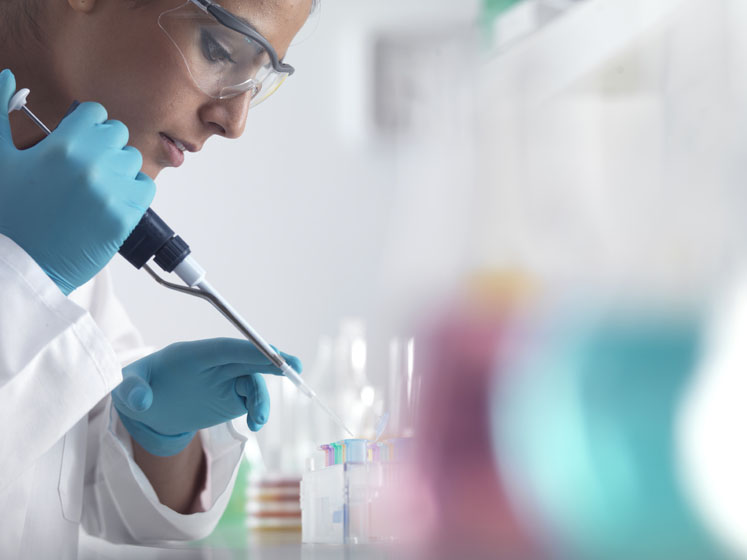DSM is set to host the webinar 'Is CBD a promising therapy for mental health disorders?' on 29 September, 3pm CEST / 2pm BST. Click here to register.
CBD is an exciting ingredient that is full of promise in the pharmaceutical industry, but its medical potential is still to be fully investigated. Rising interest in the therapeutic use of CBD is being powered by increasing scientific research, with more than 160 ongoing clinical trials examining the benefits of CBD in a number of health areas.
Further research efforts in CBD could possibly benefit millions of patients worldwide, creating an opportunity for drug developers to be at the forefront of cutting-edge science and new discoveries related to the ingredient.
What do we know about CBD?
CBD is one of the major cannabinoids, usually derived from hemp — a specific variety of the Cannabis sativa plant. Unlike tetrahydrocannabinol (THC), the other major cannabinoid, CBD does not exhibit psychoactive properties. Its existence has been known for decades, but it is only recently that it has been suggested as a promising new pharmacological strategy for a number of therapeutic areas, including central nervous system diseases (CNS), pain management, cancer, mood disorders and more.
This renewed interest in CBD follows the discovery of the endocannabinoid system (ECS) — consisting of endocannabinoids, cannabinoid receptors (known as CB1 and CB2 receptors) and cannabinoid receptor proteins — in the early 1990s.
The ECS is a complex cell signalling network that’s present throughout the body and helps to regulate and balance multiple bodily functions, including metabolism and appetite, mood and anxiety, immunity and pain perception. It is thought that CBD exerts its effects in the body via modulation and interaction with the CB1 and CB2 receptors.
This is what makes the ECS — and its corresponding molecules, including CBD — a new and exciting field of study … and a potential therapeutic target in numerous physiological conditions.

Kelsey Achenbach
A market full of promise
The science behind CBD is rapidly evolving. There is substantial evidence emerging to suggest that CBD innovation could create a myriad of opportunities to expand treatment possibilities. CBD science is strongest and most established in the field of CNS disorders — a broad category of neurological conditions including epilepsy, Alzheimer’s, Parkinson’s, stroke and even cephalgia.
Often, these conditions can be fatal and cause major disabilities or are chronic and have a significant impact on an individual’s quality of life. Epilepsy, for instance, is estimated to affect 50 million people globally; yet, 70% of patients could live seizure-free if properly diagnosed and treated.1
This highlights the importance of innovation in the space to better support patients with needs that are not currently being met by traditional pharmaceuticals.
The potential of CBD in pain management is also being explored. Chronic pain affects a large and increasing number of patients worldwide (approximately 60 million).2 Aside from experiencing the condition itself, patients with chronic pain often suffer severe negative effects on their mood, sleep and physical and mental function too.
It is extremely challenging to manage because pain is unique to each person experiencing it; plus, there are many underlying factors that can cause it. Furthermore, the common practice of prescribing opioids to individuals requiring long-term pain management puts these patients at risk of developing an opioid dependency. As a result, there is a growing search for novel solutions that will effectively and safely alleviate the symptoms of pain.
At the same time, the CBD API regulatory landscape is already reasonably well-established. Most countries apply standard API regulations, with some subregional specificities. Active monitoring of regulatory developments also shows a changing trend towards a favourable landscape, meaning that more companies are expected to start entering the market.
Thus, although the pharmaceutical industry has a long way to go to fully understand the ECS, the mechanism of action of CBD and the role of CBD in specific conditions (as well as optimal dosage requirements), there is huge potential for CBD-focused research in early stage drug development as the industry embarks on its journey of discovery.
Choosing a partner for CBD success
Pharmaceutical companies face a unique combination of legal, scientific and societal challenges when looking to bring any API, including CBD-based pharmaceuticals, to market. Some of the main considerations for CBD-based drug development are outlined below.
Ingredient quality: Not all CBD ingredients are created equal. As cannabis-derived products (including products obtained from hemp) are usually subject to harvest and other agriculture-related variability, some inconsistencies in CBD quality can be expected.
However, in the risk averse world of pharmaceuticals, it is essential for drug makers to leverage the industry’s manufacturing standards and edge out lower quality CBD ingredients. In addition, it is important that any THC, which is naturally present in hemp extract at low levels, is removed.

Connecting with a trusted supplier for high quality and reliable CBD is therefore essential for successful and purposeful drug innovation. First, to ensure batch-to-batch consistency of the CBD ingredient and, second, to guarantee that THC is removed during the purification process, resulting in an ultra-high purity CBD API isolate that complies with industrial and regulatory standards.
Security of supply and global access: As with any pharmaceutical, security of supply is critically important to protect patient health and the commercial success of a drug. To enable reliable supply, it is vital that ingredient manufacturers develop cost-effective and scalable methods to support the development of commercial-level pharmaceutical products on a global scale. For CBD API extraction and purification, for instance, it is important that the process is repeatable and cost-effective.
Formulation challenges: To be successfully utilised as a medicine, it is important to identify and overcome the inherent challenges facing the effective delivery of CBD, particularly through the patient-preferred oral route. As with many lipophilic molecules, CBD can exhibit poor solubility, especially after oral intake, resulting in reduced intestinal absorption and bioavailability.
CBD bioavailability is also negatively influenced by preferred portal vein absorption, which results in significant liver metabolism and further decreased bioavailability.
In addition, CBD can demonstrate variable pharmacokinetic profiles and possible polymorphisms, which may have unintended consequences, including lower efficacy, increased side-effects and drug–drug interactions.
Finding the optimal formulation strategy that creates a good balance between active loading in the product form and CBD bioavailability — helping to overcome what is known as the “first pass effect” and enabling high intestinal absorption after oral intake — is critical to developing a reproducible pharmacokinetic profile for this novel API.
A reliable partner that understands the challenges faced by developers during CBD formulation and can also offer application and format expertise could therefore be the difference between a successful drug product and a failed one.
Tap into the potential of CBD
CBD research is full of promise for health and pharmaceutical innovation, and there are many opportunities for novel developments in the space. However, the market is still in its infancy. With the right partner, manufacturers can enter the CBD market early and with confidence to build a leading position.
Strategic partnership is critical, not only in terms of CBD pharmaceutical manufacturing and gaining access to international, dynamic markets, but also from a research perspective. There are significant opportunities to remain at the forefront of cutting-edge science in the field, including expanding the research investigating CBD’s therapeutic indications and claims.
DSM brings those core competencies, combined with a deep understanding of patient and customer needs, plus more than 70 years of experience in producing and securing the supply of APIs, to help brands enter the CBD market with ease. In partnership with a pioneer in the CBD market, Brains Bioceutical, DSM has created a platform to help customers realise the full potential of CBD-based pharmaceuticals and ultimately develop next generation therapies that will safely and effectively improve people’s lives.
References
- www.who.int/news-room/fact-sheets/detail/epilepsy.
- T.P. Jackson, et al., “The Global Burden of Chronic Pain,” ASA Newsletter 78, 24–27 (2014).
Join DSM's webinar 'Is CBD a promising therapy for mental health disorders?' on 29 September, 3pm CEST / 2pm BST. Click here to register.
